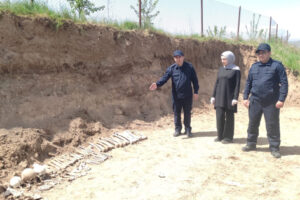Tokyo, 24 March, /AJMEDIA/
Japan’s top court on Friday acquitted a former Vietnamese trainee of abandoning her stillborn twins, overturning lower court rulings that sentenced her to a suspended prison term.
The Supreme Court’s Second Petty Bench decided on whether the acts committed by Le Thi Thuy Linh, 24, amounted to the crime of corpse abandonment. She placed the bodies in a cardboard box and left them on a shelf in her room for around 33 hours, along with a letter of apology.
Linh claimed that she had planned to hold a funeral for them but had not known what to do given the severity of the situation. She also said she had not revealed to anyone that she was pregnant for fear of being deported.
Her defense argued that she had only “temporarily laid them to rest.”
In earlier rulings, both the Kumamoto District Court and the Fukuoka High Court found her guilty, with the latter sentencing her to three months in prison, suspended for two years, in 2022.
Linh gave birth to stillborn twin boys in November 2020 at her home in Kumamoto Prefecture, southwestern Japan, where she had been working as a trainee on a mandarin farm. The stillbirth was only discovered when she was taken to a hospital the next day.
Both prosecutors and the defense agreed that Linh placed the towel-wrapped bodies of her twins in two layers of cardboard boxes along with the letter, before sealing the container with tape and placing it on a shelf in her room.
Linh’s actions “were the best she could do for a woman who had given birth alone in a foreign country,” the defense has said, adding that it would have been difficult for her to physically move after childbirth.
Prosecutors have stressed that Linh believed at the time she would be forced to leave Japan if she was discovered to be pregnant or to have given birth, arguing that the act of concealing the bodies in two layers of boxes was “far from mourning.”
The government-sponsored technical internship, introduced in 1993 under the premise that it helps to transfer skills to developing countries, has faced criticism at home and abroad over perceptions it is used as a cover for companies to import cheap labor.
The government has warned companies against dismissing or targeting foreign trainees who become pregnant while working in Japan after receiving reports from people supporting trainees that they are sometimes threatened with dismissal.







































